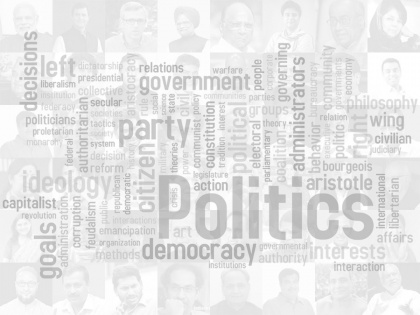Kmozhi opposes CAA, says protesting students beaten like mals
By ANI | Published: December 17, 2019 05:14 PM2019-12-17T17:14:53+5:302019-12-17T18:00:54+5:30
Dravida Munnetra Kazhagam (DMK) leader Kmozhi on Tuesday slammed the Citizenship Amendment Act and police action against students and said "this is a country that beats up students like mals and saves cows".

Kmozhi opposes CAA, says protesting students beaten like mals
Dravida Munnetra Kazhagam (DMK) leader Kmozhi on Tuesday slammed the Citizenship Amendment Act and police action against students and said "this is a country that beats up students like mals and saves cows".
Kmozhi, who took part in a protest here, accused Delhi Police of using force against students "protesting against" the Act.
"You did see how Delhi police used its force on those students who were protesting against the Citizenship Amendment Act. This is the country that beats up its students like mals and saves cows," she said.
The Thoothukudi MP claimed the Act is against humty.
"The Act is discriminatory and the United Nations will condemn it. They (BJP) made it an Act because they want to divert people's attention from real issues like economic slowdown."
"You may have a majority in Parliament, but people will not stand with you and they will continue to protest against your government," Kmozhi said.
She alleged that BJP "doesn't like Tamils since we didn't vote for them".
"We will not vote for them," she said, adding that all All India Anna Dravida Munnetra Kazhagam (AIADMK) MPs and PMK's A Ramadoss voted in favour of the bill when it was debated in parliament.
"Such people don't have the right to ask for votes in Tamil Nadu," she said.
People were present in large numbers during the protest and raised slogans opposing the Act.
Kmozhi was wearing black saree to express her opposition to the newly-enacted law.
The Act seeks to grant Indian citizenship to refugees from Hindu, Christian, Sikh, Buddhist and Parsi communities fleeing religious persecution from Pakistan, Afghstan, and Bangladesh, and who entered India on or before December 31, 2014.
( With inputs from ANI )
Open in app